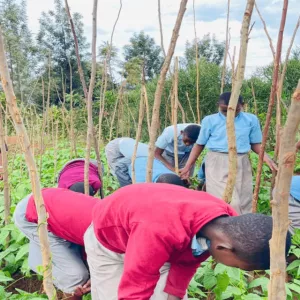Reforming school meals in Rwanda through common beans
In Rwanda’s agricultural landscape, beans also play a crucial role. As the second most cultivated crop, they account for nearly 28% of the country’s total arable land. Smallholder farmers grow beans for both personal consumption and commercial sale, making them a vital crop for sustainable livelihoods, food security, and overall nutrition. Because of this, beans are not just a food,

Reforming school meals in Rwanda through common beans
In Rwanda’s agricultural landscape, beans also play a crucial role. As the second most cultivated crop, they account for nearly 28% of the country’s total arable land. Smallholder farmers grow beans for both personal consumption and commercial sale, making them a vital crop for sustainable livelihoods, food security, and overall nutrition. Because of this, beans are not just a food, but a foundation of resilience in Rwanda’s rural communities, supporting both local economies and the nation’s long-term well-being.

